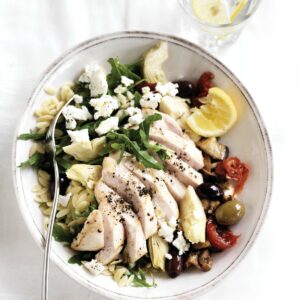
Gaining weight is an essential part of pregnancy, but too much or too little can cause concern.
Almost two-thirds of the weight gained will be water, about a third fat and the rest protein to nourish the growing baby. It seems to go without saying that most of the extra fat is deposited around the hips and thighs. During pregnancy, this is where it is needed. The optimum amount of weight to gain during pregnancy depends on how much you weigh before becoming pregnant. Lighter women should gain more weight than larger women although in reality the reverse is usually true.
The Ministry of Health recommends the weight gain as shown in our table below, during pregnancy, according to pre-pregnancy body mass index (BMI), a measure of weight related to height.
| Weight for height category | Recommended weight gain in pregnancy |
| Low BMI (less than 19.8) | 12.5 – 18kg |
| Normal BMI (19.8 – 26.0) | 11.5 – 16kg |
| High BMI (26.0 – 29.0) | 7 – 11kg |
| Very high BMI (over 29.0) | 6kg |
Shedding these previously important extra kilos after the baby is born can be hard work at a time when women are also battling with sleepless nights and the many other demands of motherhood. Breastfeeding is said to be the solution, but its effectiveness as a controller of weight does not equal that of its importance to the new baby. Experiences vary.
Weight loss will also be harder for those who gained most of their weight during the first 20 weeks, rather than the second when it’s most needed by the rapidly growing baby. Increasing age and number of pregnancies are among other factors which contribute to the extra weight’s stubbornness to shift. However it goes, it won’t disappear overnight; it can be 9-12 months before that extra weight is lost.
The experiences of top celebrity mothers, seemingly able to shed weight instantly, don’t reflect the norm, and may well not be good for them. This is certainly not the time for dieting. A new mother needs all the nourishment she can obtain to fuel her demanding lifestyle and the needs of her growing baby.
Severe food restriction will deprive a mother of much-needed energy and essential vitamins and minerals. Quality, not quantity, is important now, with some activity to help burn off any extra kilojoules.
Pregnancy tips
- While you are pregnant, aim for quality not quantity. Your food needs to be twice as nutritious, not twice as much.
- Stay active. Many women find swimming a good activity as pregnancy progresses, being low-impact as well as beneficial.
- Once your baby arrives, try keeping easy meal options in the freezer or pantry. Individual portions of meat and fish, plus packets of frozen veg in the freezer make a quick, effortless meal together with pantry stalwarts such as pasta or rice.
- Beware of confusing hunger and thirst. If you are breastfeeding, you will need to drink plenty, so keep a jug of water to hand.
- Taking your baby out for a walk is a good workout for you, particularly pushing a buggy, and often helps a restless baby sleep.
www.healthyfood.com











